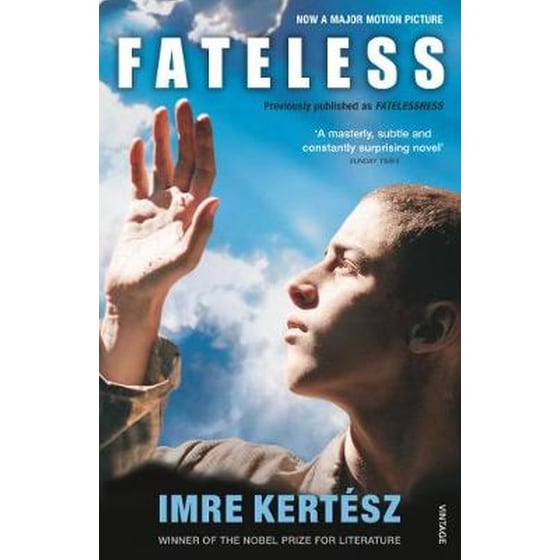Fateless
"Fatlessness" is a semi-autobiographical novel inspired by the Imre Kertész's own experiences, since he was imprisoned in concentration camps during World War II, which are put in the book through the eyes of 15 year-old protagonist, György Köves.
What makes this book so special and worth the Nobel Prize in Literature that the author won is how different it feels from other Holocaust stories, both from autobiographical/semi-autobiographical ones and especially from historical fiction about the period. Especially when it comes to historical fiction about World War II and the Holocaust, the author's point is to write something super emotional that will cause endless sadness to the reader and therefore make them reflect on that major crime against humanity!
In ''Fatelessness'', however, probably because the author himself wanted to write his work with full honesty there's a sort of 'apathy' and lack of emotions. It's not full of moving scenes, and you probably won't even cry while reading it. That's what's so great about it: it's not about being emotional and sad, it shows that Holocaust stories aren't put out in the world to "please'' readers with how absolutely heart-breaking they are, their purpose isn't to make you shed tears and put them on ''I-cried-my-eyes-out" shelf on Goodreads (taking example from my own shelf, which is called that). It's people wanting to describe their true emotions at a time when they experienced humanity's worst and most shameful moment.
György Köves isn't having a tear-jerker narrative saying, "oh, this happened, and this happened and it was very sad and I felt horrible and cried''. Obviously he went through the most awful experience a person could go through, people, he was in concentration camps, for goodness' sake.
And what he shows with the writing of this book is that emotional writing shouldn't be required for people to see exactly how awful and inhumane the Holocaust was. He describes his thoughts at a time where he was suddenly taken away from his life and put from concentration camp to concentration camp without understandind what was happening and he was just trying to go from one day to the next and make an interesting routine for himself. He realizes how weird that might sound but he expresses not feeling that worried at times, or being annoyed by boredom most of all, or finding it ridiculous when people told him how horrible his own experience was and how it's better to try to forget about it. He says that no matter how bad that sounds he had different routines while he was in the concentration camps. On one part he even says " People compare the concentration camps to Hell. For me Hell is a place where you're always bored and you didn't always feel bored in the concentration camps, so I wouldn't call them Hell".
That might seem very upsetting to some people, even provocative and inappropriate, but who are you, people who haven't lived through such a suffering as the Holocaust, to tell the man who did live trhough it that he's not describing it "tragically enough"? World War II novels aren't written to fullfill humans' instinctual need to be fed off of tragedy: they're written to express the author's experiences and thoughts.
So, what some people though of as ''apathetic writing'' was the way this man experienced the Holocaust. And how could anyone dare to say that he didn't "experience it right"?
Highly recommend "Fatelessness" for people who want to move from historical fiction about the WWII to autobiographical/semi-autobiographical novels about it!


